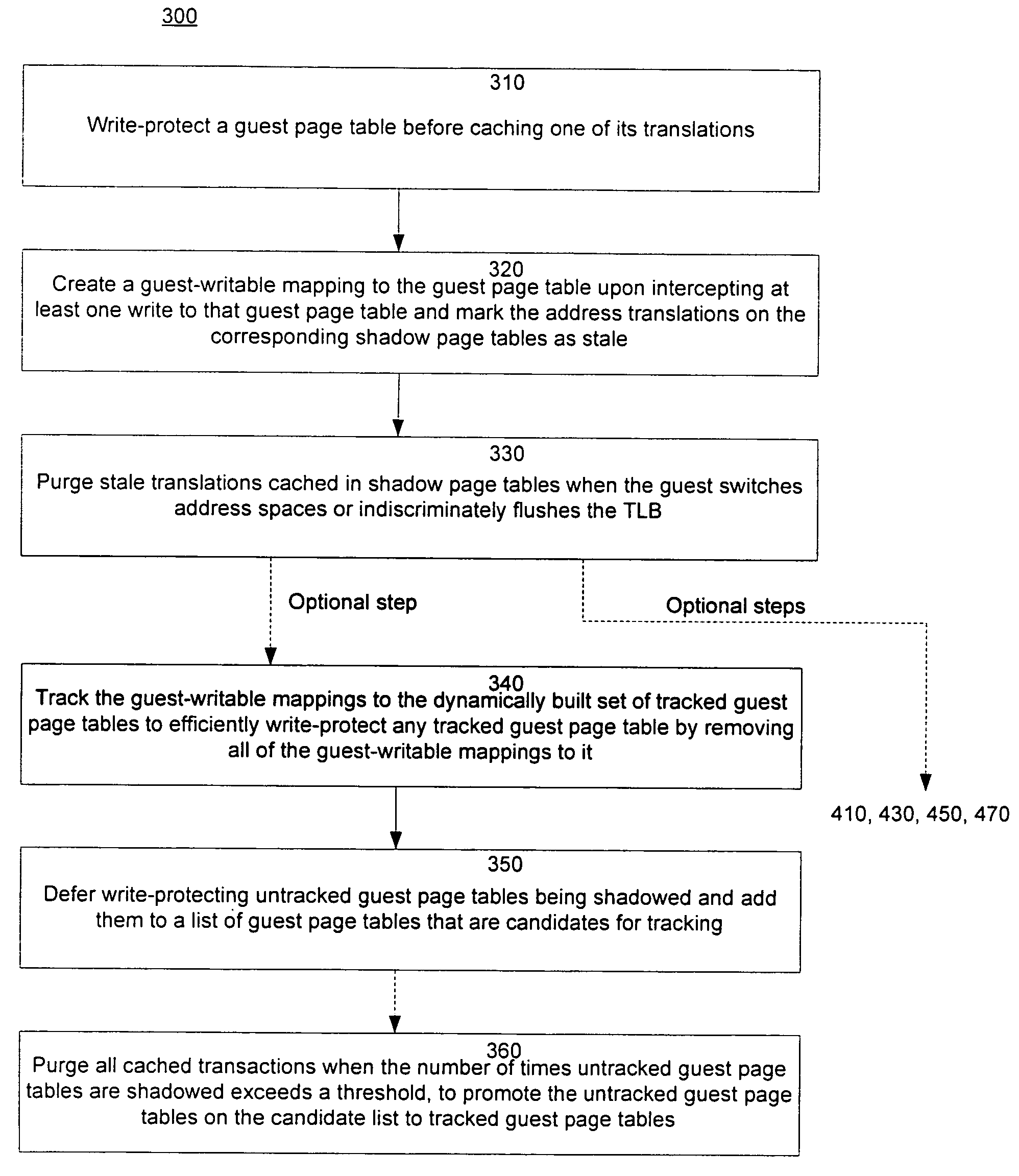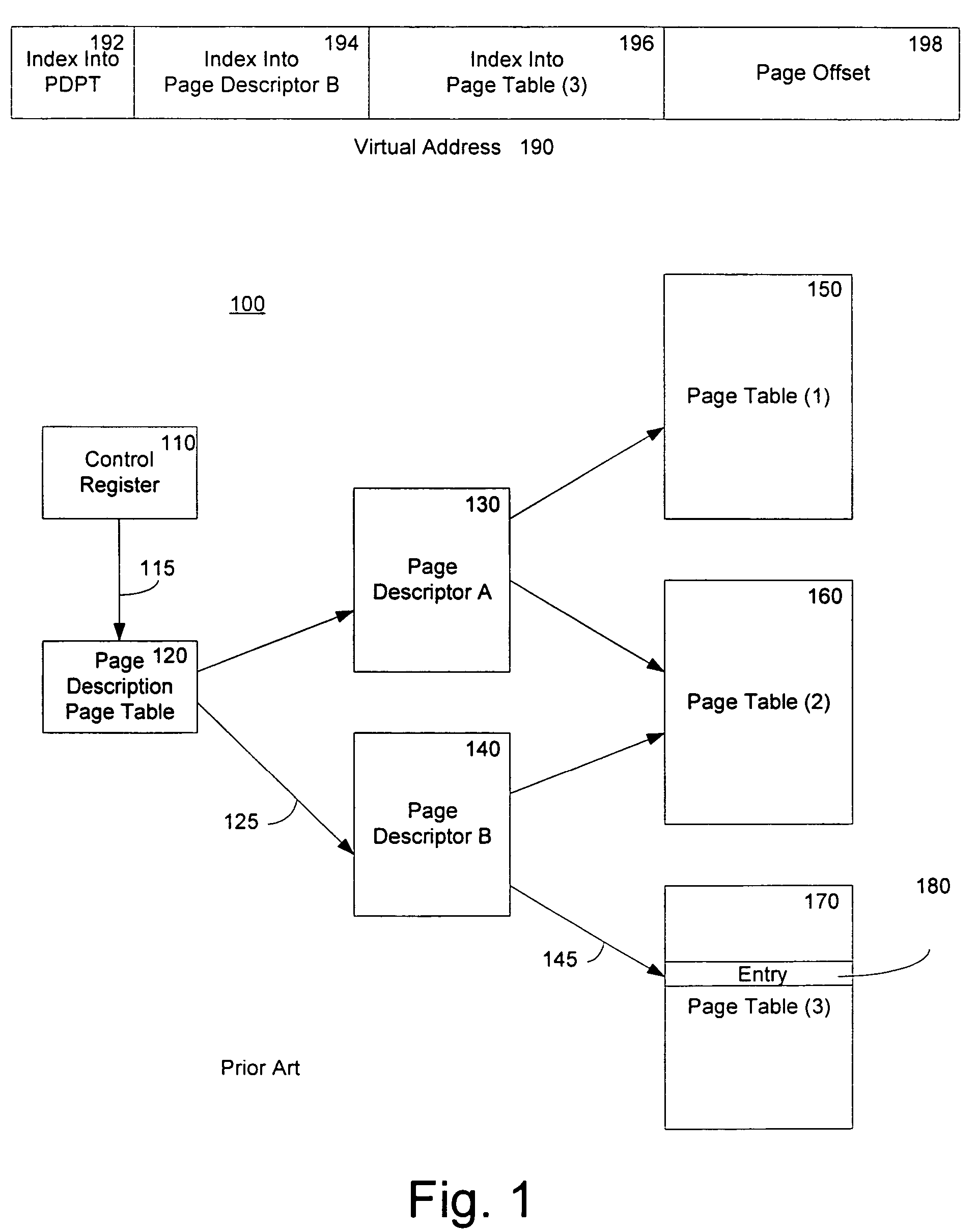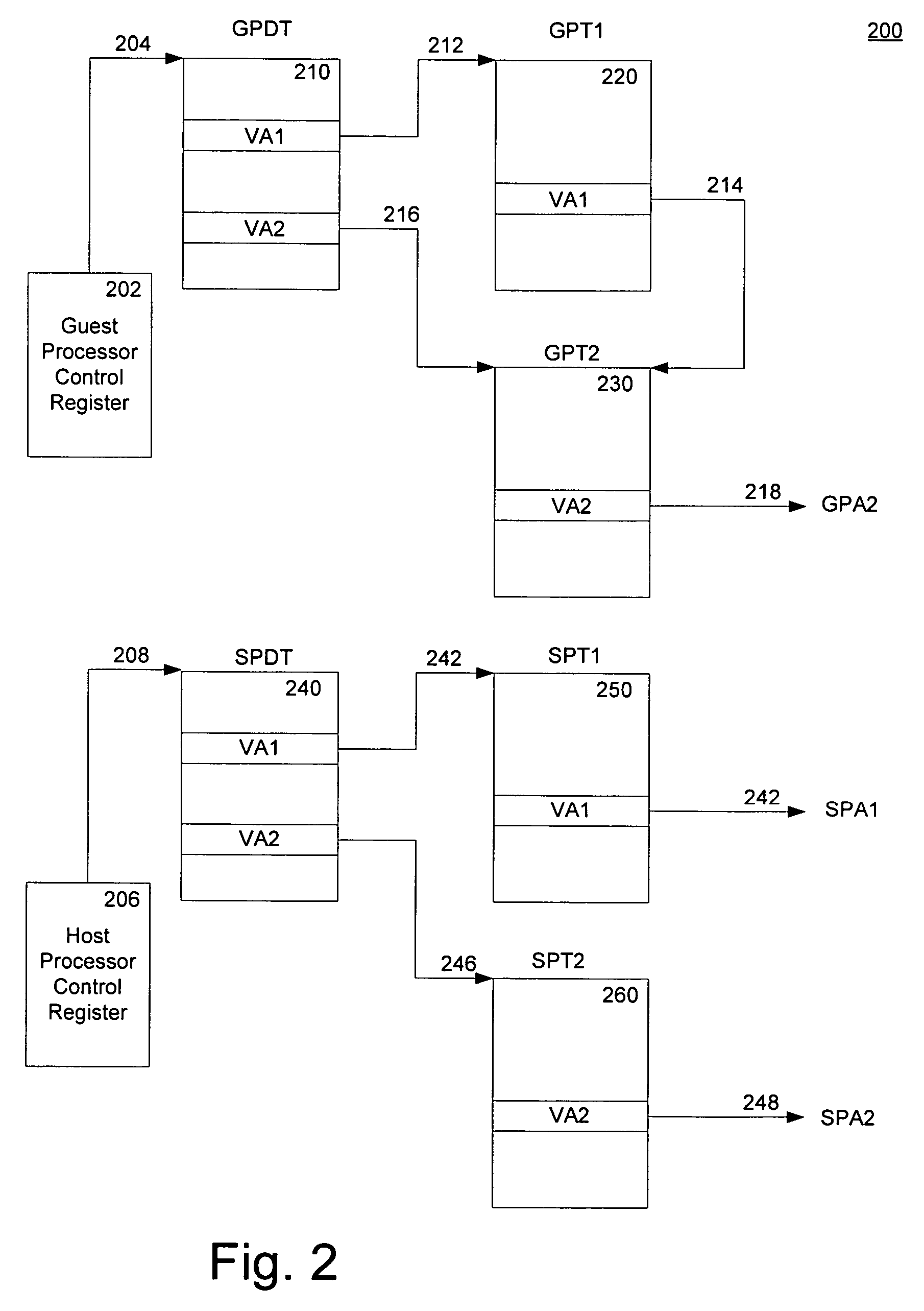Method and system for caching address translations from multiple address spaces in virtual machines
a technology of address translation and virtual machine, applied in the field of computer programming, can solve the problems of prohibitive cpu and memory cost of tracking guest-writable mapping to all guest pages, and achieve the effect of avoiding the cost of having and reducing the memory overhead of spts
- Summary
- Abstract
- Description
- Claims
- Application Information
AI Technical Summary
Benefits of technology
Problems solved by technology
Method used
Image
Examples
Embodiment Construction
Overview
[0023]In one virtual machine implementation, the Virtual Machine Monitor (VMM) implements a set of shadow page tables (SPTs) that caches address translations in the guest page tables maintained by the guest operating system. The guest page tables (GPTs) map virtual addresses (VAs) to guest physical addresses (GPAs), but the VMM makes a second-level translation from GPAs to system physical addresses (SPAs). The SPTs cache processor traversable VA-to-SPA translations based on the two different sets of mappings, VA-to-GPA specified by the guest and GPA-to-SPA enforced by the VMM. The SPTs initially do not cache any translations but they build up their cache of translations on demand as the guest accesses memory. When the guest accesses a VA for the first time, the processor generates a page fault and traps into the VMM, because the SPTs have no valid entries for that VA. The VMM page fault handler walks the GPTs related to that VA and reads the VA-to-GPA translation. If the GPT...
PUM
 Login to View More
Login to View More Abstract
Description
Claims
Application Information
 Login to View More
Login to View More - R&D
- Intellectual Property
- Life Sciences
- Materials
- Tech Scout
- Unparalleled Data Quality
- Higher Quality Content
- 60% Fewer Hallucinations
Browse by: Latest US Patents, China's latest patents, Technical Efficacy Thesaurus, Application Domain, Technology Topic, Popular Technical Reports.
© 2025 PatSnap. All rights reserved.Legal|Privacy policy|Modern Slavery Act Transparency Statement|Sitemap|About US| Contact US: help@patsnap.com



